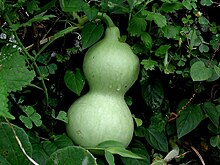Umkhosi Wokweshwama


Umkhosi Wokweshwama [um̩kʰoːsi woɠʷeʃʷaːma] ("first fruits festival"), recently also known as Umkhosi Woselwa [um̩kʰoːsi woseːlʷa] ("calabash festival"), is the annual harvest festival of the Zulu people, observed around the December solstice. It takes place at the Enyokeni Royal Palace in Nongoma, KwaZulu-Natal, and is presided over by the Zulu King, who conducts a tasting ceremony as sacred king, closed by the dashing of a calabash to signify that the people may now enjoy the fruits of the harvest; this role was historically expanded by Shaka to have more military significance with a muster and parade.[1][2][3][4][5] It was revived by the current king Goodwill Zwelithini kaBhekuzulu in 1990, after a ban by British colonial authorities following the 1879 Battle of Isandlwana and Zulu defeat in the Anglo-Zulu War (the last was held in winter 1877–78, though some claim continuity as a less elaborate event).[3][4][5][6][7][8][9][10]
The festival has mass participation by young men, as Umkhosi woMhlanga has by young women. There is a black bull sacrifice in the king's kraal as the young men work together to kill the animal without weapons, which was the subject of a failed lawsuit by South African animal rights activists in 2009.[11][12][5] The sacrifice of the bull is seen as transferring the bull's power to the king.[11] The iNkatha was also renewed.[4] The Scottish mythographer James George Frazer speculated that this reflected an ancient practice of sacrificing the king himself.[13]
The Kingdom of Swaziland's counterpart event is Incwala, part of a larger family of Nguni First Fruit traditions.[2] Aspects of the festival have been adapted by the Zulu-initiated Nazareth Baptist Church in its celebration of Christmas.[14] The Zulu festival was a partial inspiration for the modern African-American holiday of Kwanzaa.[15]
References
- ^ Flint, Karen Elizabeth (2008). Healing Traditions: African Medicine, Cultural Exchange, and Competition in South Africa, 1820–1948. Ohio University Press. p. 76. ISBN 9780821418499. Archived from the original on 2018-02-09.
- ^ a b Snedegar, Keith (1998). "First Fruits Celebrations among the Nguni Peoples of Southern Africa: An Ethnoastronomical Interpretation". Journal for the History of Astronomy, Archaeoastronomy Supplement. 29: 31–38. Bibcode:1998JHAS...29...31S.
- ^ a b Chidester, David (2014-06-27). Religions of South Africa (Routledge Revivals). Routledge. pp. 25–27. ISBN 9781317649878. Archived from the original on 2018-02-09.
- ^ a b c Canwell, Diane (2004-09-30). Zulu Kings and their Armies. Pen and Sword. pp. 33–36. ISBN 9781844150601. Archived from the original on 2018-02-09.
- ^ a b c "In the High Court Of South Africa KwaZulu-Natal-Natal, Pietermaritzburg – Case No: 10237/2009" (PDF). Southern African Legal Information Institute. 2009-01-04. Archived (PDF) from the original on 2018-01-03.
- ^ Dubin, Steven C. (2012). Spearheading Debate: Culture Wars & Uneasy Truces. Jacana Media. p. 59. ISBN 9781431407378. Archived from the original on 2018-02-09.
- ^ Bevan, Stephen (2007). "Bulls' killing in Zulu rite condemned as barbaric". Daily Telegraph. ISSN 0307-1235. Archived from the original on 2018-01-02. Retrieved 2018-01-01.
- ^ Rautenbach, Christa (2011-12-19). "Umkhosi Ukweshwama: Revival of a Zulu Festival in Celebration of the Universe's Rites of Passage". Rochester, NY. SSRN 1974444.
{{cite journal}}: Cite journal requires|journal=(help) - ^ Johannesburg, Christopher S. Wren; Christopher S. Wren is The Times's bureau chief in (1991-02-17). "The Chief Steps Forward". The New York Times. ISSN 0362-4331. Archived from the original on 2018-01-02. Retrieved 2018-01-01.
{{cite news}}: CS1 maint: multiple names: authors list (link) - ^ Johannesburg, Christopher S. Wren; Christopher S. Wren is The Times's bureau chief in (1991-02-17). "The Chief Steps Forward". The New York Times. ISSN 0362-4331. Archived from the original on 2018-01-02. Retrieved 2018-01-15.
{{cite news}}: CS1 maint: multiple names: authors list (link) - ^ a b Bearak, Barry (2009-12-08). "Spilling the Blood of Bulls to Preserve Zulu Tradition". The New York Times. ISSN 0362-4331. Archived from the original on 2018-01-01. Retrieved 2017-12-31.
- ^ "Bull-killing can go ahead, says court". Mail & Guardian. 2009-04-12. Archived from the original on 2015-05-16. Retrieved 2018-01-01.
- ^ Frazer, James George (2012-04-26). The Golden Bough. Cambridge University Press. pp. 67–68. ISBN 9781108047371. Archived from the original on 2018-02-09.
- ^ Oosthuizen, Gerhardus Cornelis (1967). The Theology of a South African Messiah: An Analysis of the Hymnal of The Church of the Nazarites. Brill Archive. p. 112. Archived from the original on 2018-02-09.
- ^ Mayes, Keith A. (2009-09-10). Kwanzaa: Black Power and the Making of the African-American Holiday Tradition. Routledge. p. 84. ISBN 9781135284008. Archived from the original on 2018-02-09.
External links
- Cultural Development (Festivals) on KwaZulu Natal Department of Arts & Culture
- 1995 Associated Press video on YouTube
